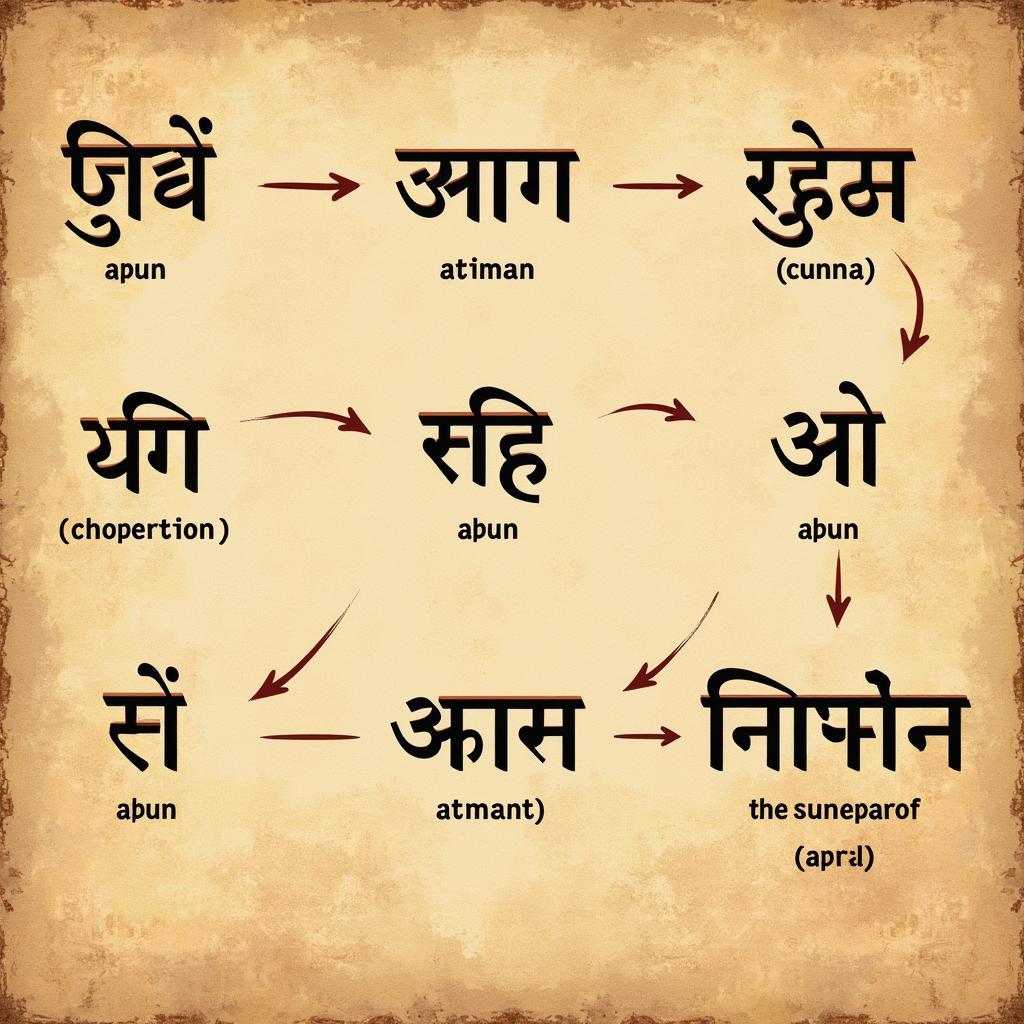Apun, a word you might hear echoing through the bustling streets of India, carries a weight beyond its simple pronunciation. It’s more than just a pronoun; it’s a reflection of culture, identity, and social dynamics. This article delves into the multifaceted meaning of “apun” in Hindi, exploring its origins, usage, and cultural implications.
Unveiling the Roots of “Apun”
“Apun” is derived from the Sanskrit word “atman,” meaning “self” or “soul.” This connection to a deeply spiritual concept hints at the word’s inherent significance. Over time, “atman” transformed into “apna” (meaning “our” or “one’s own”) and eventually evolved into the colloquial “apun.” This linguistic journey reflects the dynamic nature of language and how words adapt and change across generations.
 Apun Meaning and Origin
Apun Meaning and Origin
“Apun” in Everyday Conversation: More Than Just “I”
While “apun” primarily translates to “I” or “me,” its usage is far more nuanced than a simple first-person pronoun. It often conveys a sense of camaraderie, informality, and even a touch of swagger. You’ll frequently hear it in casual conversations, Bollywood dialogues, and amongst close friends.
Regional Variations and Social Contexts
The meaning and usage of “apun” can vary slightly depending on the region and social context. In some areas, it might be used more by men than women, while in others, it’s a common expression across genders. It’s crucial to understand these subtle variations to avoid misinterpretations.
“Apun Ka Style”: Embracing Identity and Belonging
The phrase “apun ka style” (meaning “my style”) perfectly encapsulates the spirit of “apun.” It represents a sense of individual identity, self-expression, and belonging within a particular social group. This phrase has even permeated popular culture, appearing in songs and movies, solidifying its place in contemporary Hindi slang.
Decoding the Nuances: When and How to Use “Apun”
Using “apun” correctly requires understanding its informal nature. It’s generally inappropriate in formal settings or when speaking to elders or authority figures. Its casual and often playful connotation makes it best suited for conversations with friends and peers.
“Apun” and Bollywood: A Match Made in Cinematic Heaven
Bollywood, India’s vibrant film industry, has played a significant role in popularizing “apun.” Characters often use the word to portray a certain personality type – often street-smart, rebellious, or charismatic. This cinematic representation has further cemented “apun” in the public consciousness.
Conclusion: The Enduring Appeal of “Apun”
“Apun,” a word with humble origins, has evolved into a powerful symbol of identity and belonging. It transcends its literal meaning, encompassing a rich tapestry of cultural and social nuances. Understanding “apun” provides a valuable glimpse into the heart of informal Hindi communication. So, the next time you hear this distinctive word, you’ll appreciate its depth and significance.
FAQ:
- What is the literal meaning of “apun”? (A: “I” or “me”)
- Is “apun” considered formal Hindi? (A: No, it’s informal.)
- In which regions is “apun” most commonly used? (A: Primarily in Mumbai and surrounding areas, but also found elsewhere in India.)
- Is it appropriate to use “apun” with elders? (A: Generally, it’s best to avoid using it in formal situations or with elders.)
- What is the cultural significance of “apun”? (A: It represents camaraderie, informality, and a sense of belonging.)
- How has Bollywood influenced the use of “apun”? (A: Bollywood has popularized the word and associated it with certain personality types.)
- Where can I learn more about Hindi slang and colloquialisms? (A: Explore other resources on ViperCircle for a deeper understanding of Hindi language and culture.)
Need further assistance? Contact us at Contact@ViperCircle.com or visit us at G-5, लोअर परेल, सेनापति बापट मार्ग, मुंबई, महाराष्ट्र – 400013, भारत।. We have a 24/7 customer support team.